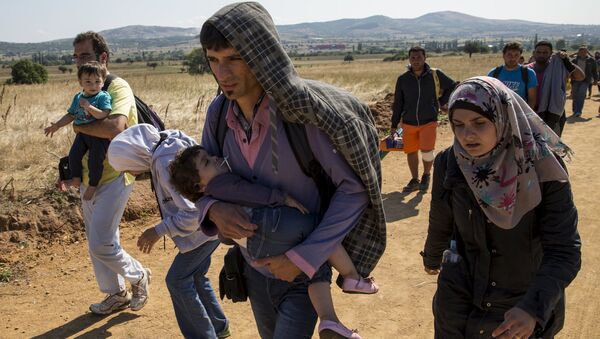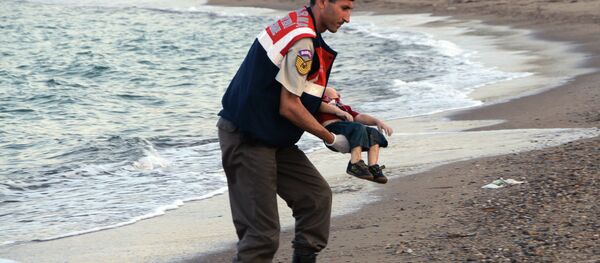Friends of Syria was a group of countries including Saudi Arabia, Qatar and the United Arab Emirates, which united to provide diplomatic and often financial support to facilitate "regime change" in Syria in 2012.
The group's Arab country members have since then rejected refugees leaving the country as a result of its civil war and resulting massive humanitarian crisis. The same countries have also sponsored rebel organizations in Syria, often supporting them with financial and logistical aid.
عالم ما عندها مروّة #أزمة_اللاجئين #كارتون @jabertoon #صحيفة_مكة pic.twitter.com/BjzKI4TfQd
— صحيفة مكة (@makkahnp) September 1, 2015
"Why don't you let them in, you discourteous people?" A cartoon in the Saudi newspaper Makkah.
Refugees Not Welcome
According to the BBC, in addition to having complex visa rules and not participating in conventions on refugees, the countries rely largely on migrant workers from Southeast Asia.
To make matters worse, Saudi Arabia has been deporting migrant workers, particularly those from neighboring Arab countries such as Yemen. According Human Rights Watch, the country deported an average of 2,000 migrants per day between November 2014 and March 2015.
In addition, Saudi Arabia's kafala system only allows migrants to enter the country with sponsorship from their employment.
Planned Catastrophe
The Gulf countries also foresaw the refugee crisis after Syria's conflict began in 2011, according to Alexander Sotnichenko, dean of the international relations department at Saint Petersburg State University.
"The Gulf countries foresaw the humanitarian catastrophe as a result of the civil war in Syria and in 2011 financed the construction and maintenance of large camps in Turkey and Jordan," Sotnichenko wrote.
"From Turkey it is even more difficult to get to Gulf countries [than from Syria], while Europe is much closer," Sotnichenko added.
As a result, refugees are able to get to Europe illegally from Turkey, while entering Gulf countries is much more difficult, according to Sotnichenko. In addition, Syrian refugees in Saudi Arabia's neighbor Jordan are detained and sent to refugee camps.




